approach
Middle East and Europe
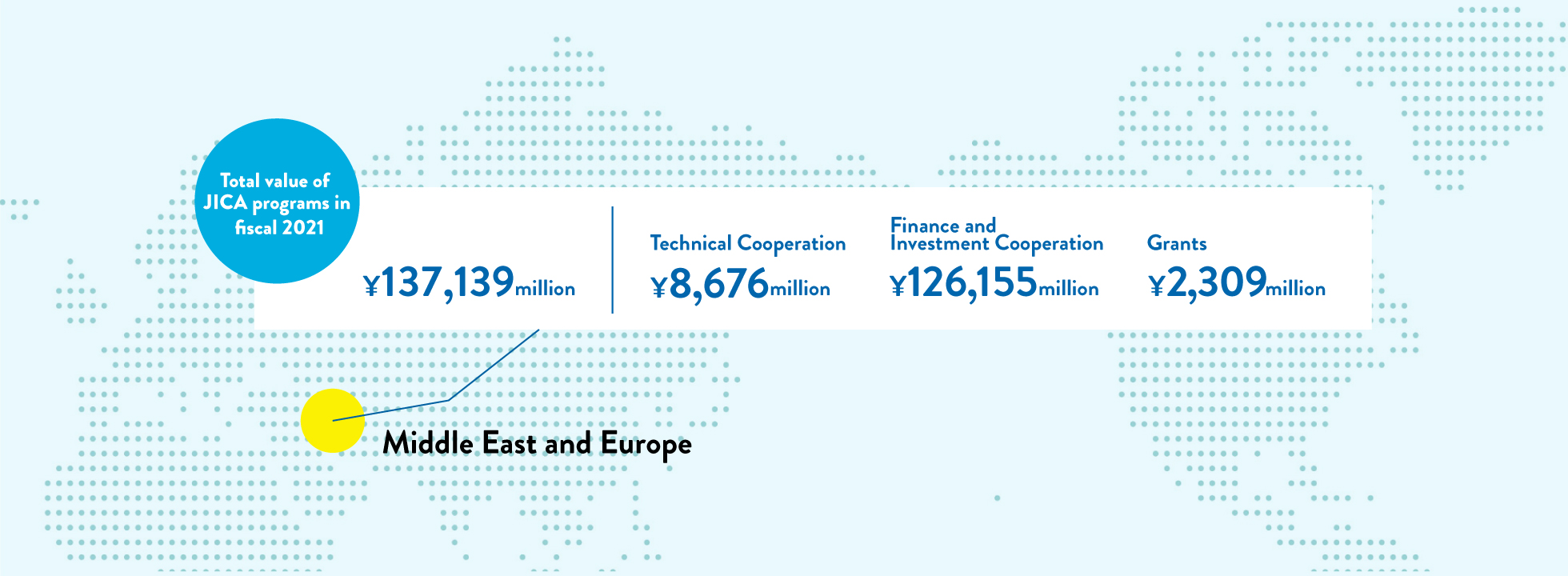
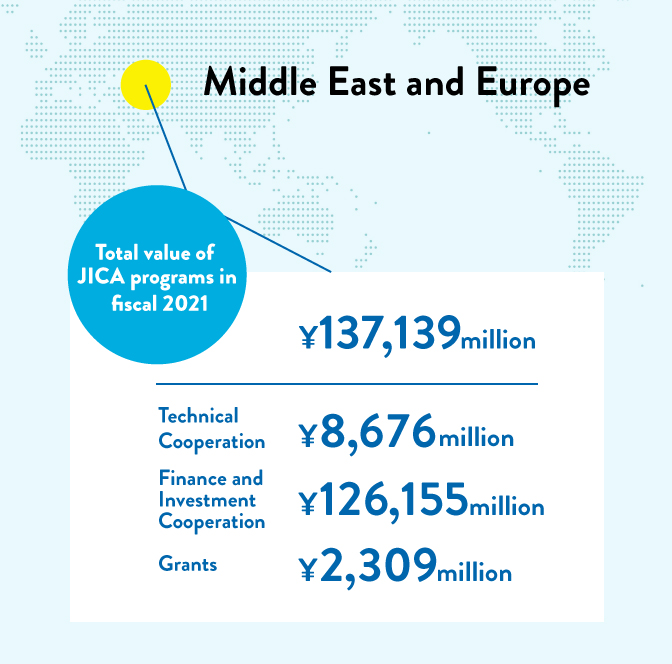
Coping with Twin Crises: Regional Turmoil and COVID-19
Lasting geopolitical instability and accelerating crises
In the Middle East, political instability has been lingering in many countries. In Yemen, Syria, and Libya, civil wars have destroyed basic infrastructure and deprived people of educational opportunities. The influx of Syrian refugees and their subsequent residence constitute a significant social and economic burden for Jordan, Lebanon, and Turkey. Even Tunisia, where the Arab Spring originated, is now facing social and economic turmoil.
In Europe, the momentum for reform with a view to acceding to the European Union (EU) is increasing among Western Balkan countries. Yet the Ukraine conflict that broke out in February 2022 is affecting not only Eastern European countries that are hosting Ukrainian refugees but also the entire world in the form of soaring food and energy prices.
In both regions, the pandemic sent already high unemployment rates even higher. Poverty is also rising. All these developments point to the need for assistance for the poor and vulnerable in each country in these regions.
Mid- to long-term efforts toward peace and stability
JICA understands that peace and stability in the Middle East and Europe are crucial for the peace and prosperity of the international community, including Japan. With this in mind, JICA extended development cooperation in fiscal 2021 from a medium- and long-term perspective, with focus on four pillars: (1) regional stability and human security, (2) quality growth, (3) human resources development and exchanges as well as nurturing of future leaders with great affinity toward and knowledge of Japan, and (4) promotion of regional initiatives.
Specifically, JICA delivered cooperation to Jordan for strengthening the framework for providing refugees staying in the country with appropriate mental and psychological care at the community level. It also continued to provide opportunities for Syrian refugees to study at Japanese universities.
Moreover, toward increasing employment and promoting industrial innovation, JICA cooperated with Tunisia in improving the quality and productivity of local products, while in Morocco it continued with a project aimed at recycling olive mill waste by leveraging the expertise of a Japanese private firm.
JICA has been supporting Egypt—which is promoting Japanese-style education—with wide-ranging cooperation in education, covering stages from preschool to college education. Across the country, there are now a total of 48 Egyptian Japanese Schools:primary schools that incorporate Japanesestyle education. The JICA Chair was also implemented at selected universities in Serbia and Turkey, contributing to nurturing leaders with great affinity toward and knowledge of Japan.
JICA is also engaged in a regional cooperation framework involving Japan, Palestine, Israel, and Jordan. This quadripartite framework involves middle- to long-term efforts to encourage the economic self-reliance of Palestine. As part of such efforts, JICA cooperated with Palestine and Jordan in restoring ruins of great historical value and making better use of local tourism resources, thus contributing to regional economic revitalization and employment promotion.
Total value of JICA programs by country : Europe

Total value of JICA programs by country : Middle East
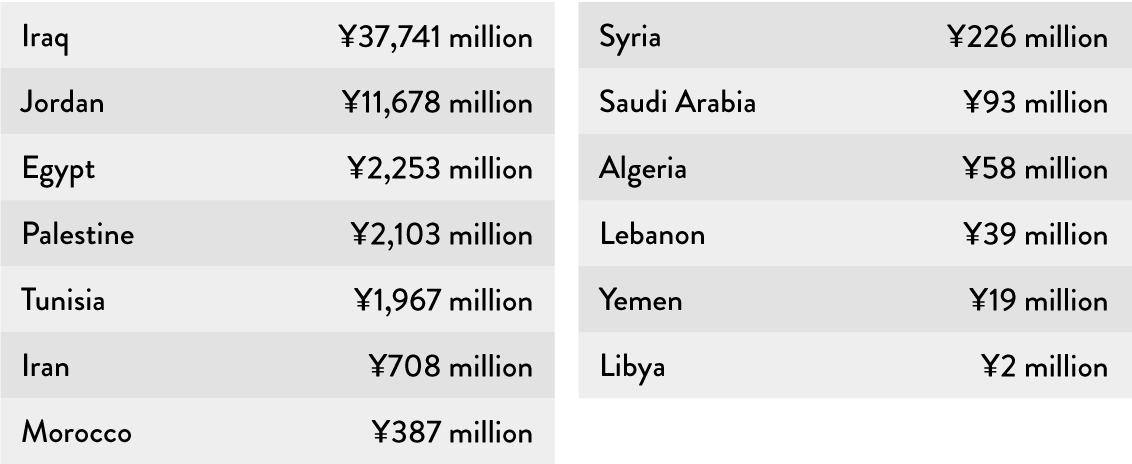 Note) Totals may not add up due to rounding.
Note) Totals may not add up due to rounding.
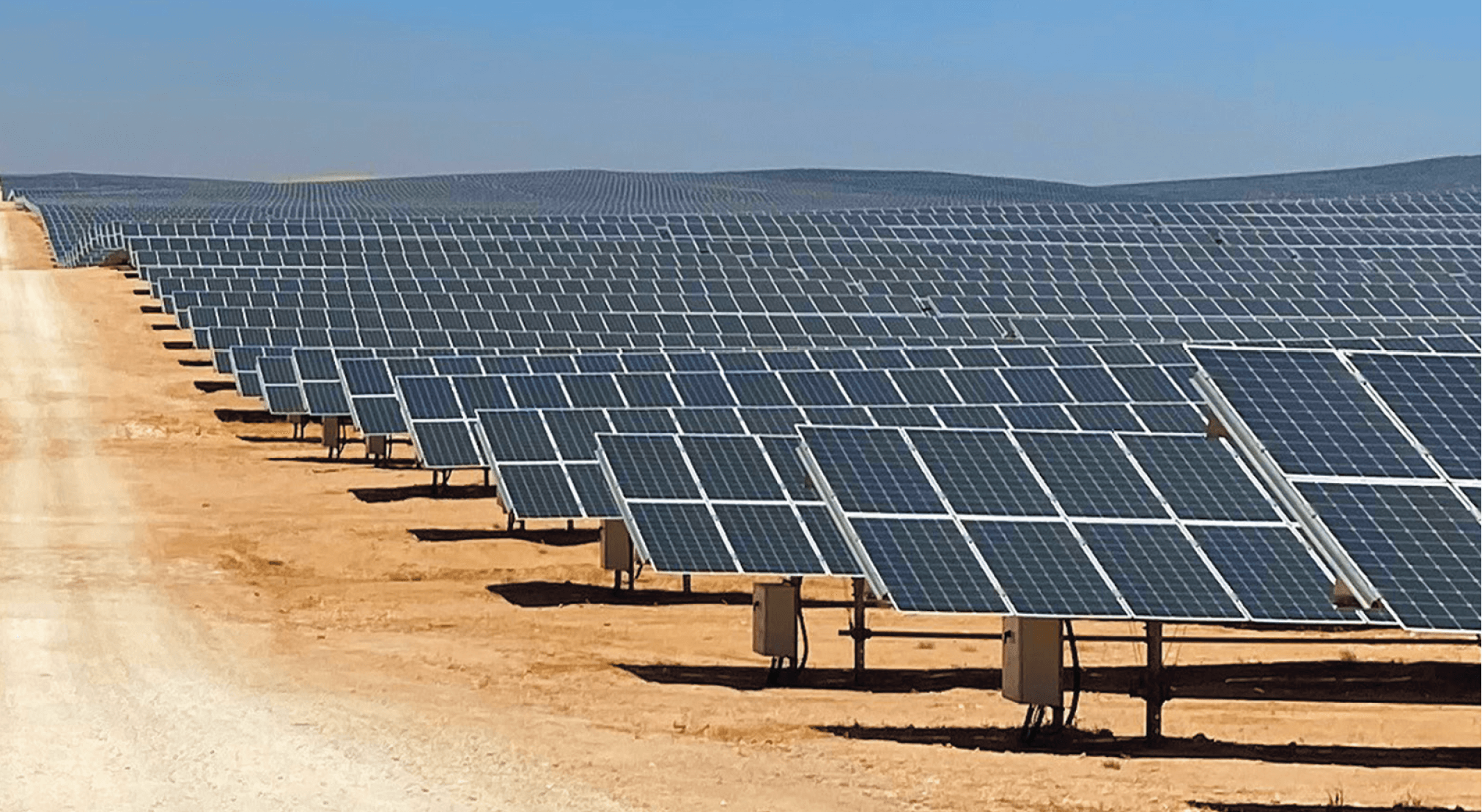 Jordan: JICA cooperated in constructing and managing a 200 MW solar power plant—one of the largest in the country— under the Al-Muwaqqar Solar Energy Project to increase power supply and diversify power sources. The new plant contributes to meeting growing power demand from Jordan’s economic development and refugee hosting communities. It also helps mitigate the impact of climate change, a key challenge facing the Middle East and Europe as well.
Jordan: JICA cooperated in constructing and managing a 200 MW solar power plant—one of the largest in the country— under the Al-Muwaqqar Solar Energy Project to increase power supply and diversify power sources. The new plant contributes to meeting growing power demand from Jordan’s economic development and refugee hosting communities. It also helps mitigate the impact of climate change, a key challenge facing the Middle East and Europe as well.
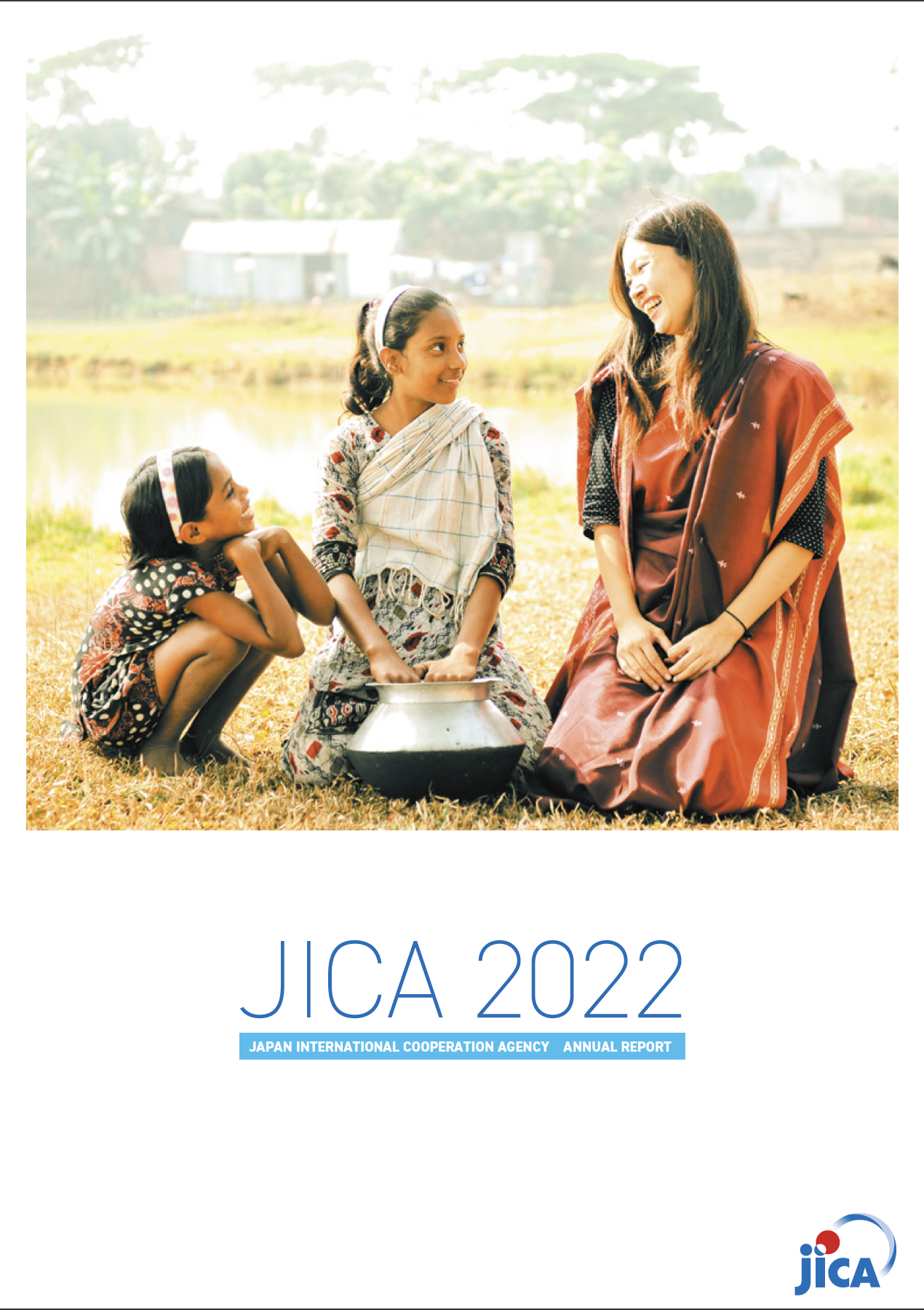
JICA Annual Report 2022